
The Sound of Music is a musical with music by Richard Rodgers, lyrics by Oscar Hammerstein II, and a book by Howard Lindsay and Russel Crouse. It is based on the 1949 memoir of Maria von Trapp, The Story of the Trapp Family Singers. Set in Austria on the eve of the Anschluss in 1938, the musical tells the story of Maria, who takes a job as governess to a large family while she decides whether to become a nun. She falls in love with the children, and eventually their widowed father, Captain von Trapp. He is ordered to accept a commission in the German Navy, but he opposes the Nazis. He and Maria decide on a plan to flee Austria with the children. Many songs from the musical have become standards, including "Do-Re-Mi", "My Favorite Things", "Edelweiss", "Climb Ev'ry Mountain", and the title song "The Sound of Music".
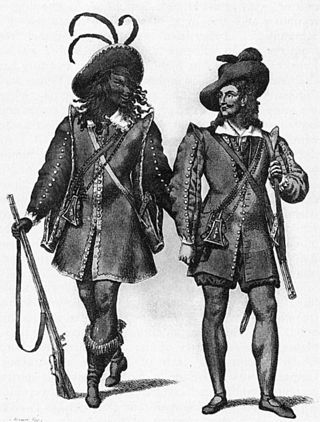
Der Freischütz is a German opera with spoken dialogue in three acts by Carl Maria von Weber with a libretto by Friedrich Kind, based on a story by Johann August Apel and Friedrich Laun from their 1810 collection Gespensterbuch. It premiered on 18 June 1821 at the Schauspielhaus Berlin. It is considered the first German Romantic opera.
The following is an overview of the events of 1895 in film, including a list of films released and notable births.
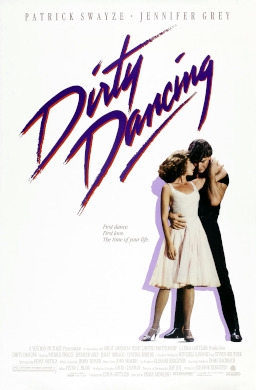
Dirty Dancing is a 1987 American romantic drama dance film written by Eleanor Bergstein, produced by Linda Gottlieb, and directed by Emile Ardolino. Starring Patrick Swayze and Jennifer Grey, it tells the story of Frances "Baby" Houseman (Grey), a young woman who falls in love with dance instructor Johnny Castle (Swayze) at a vacation resort.

A flip book, flipbook, flicker book, or kineograph is a booklet with a series of images that very gradually change from one page to the next, so that when the pages are viewed in quick succession, the images appear to animate by simulating motion or some other change. Often, flip books are illustrated books for children, but may also be geared toward adults and employ a series of photographs rather than drawings. Flip books are not always separate books, but may appear as an added feature in ordinary books or magazines, frequently using the page corners. Software packages and websites are also available that convert digital video files into custom-made flip books.

Max Skladanowsky was a German inventor and early filmmaker. Along with his brother Emil, he invented the Bioscop, an early movie projector the Skladanowsky brothers used to display a moving picture show to a paying audience on 1 November 1895, shortly before the public debut of the Lumière Brothers' Cinématographe in Paris on 28 December 1895.
Album for the Young, Op. 68, was composed by Robert Schumann in 1848 for his three daughters. The album consists of a collection of 43 short works. Unlike the Kinderszenen, they are suitable to be played by children or beginners. The second part, starting at Nr. 19, is marked Für Erwachsenere and contains more demanding pieces.
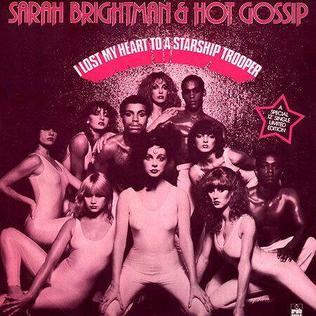
"I Lost My Heart to a Starship Trooper", sometimes cited as "(I Lost My Heart to A) Starship Trooper", is a 1978 single written by Jeff Calvert and Max West of Typically Tropical and performed by Sarah Brightman and the dance troupe Hot Gossip. It was the debut of the 18-year-old Brightman, and reached number six on the UK Singles Chart.

Akrobatisches Potpourri is an 1895 German short black-and-white silent documentary film directed and produced by Max and Emil Skladanowsky and starring the Grunato family. It is one of the first German produced films.

Boxing Kangaroo is an 1895 German short black-and-white silent documentary film, directed and produced by Max Skladanowsky, which features a kangaroo boxing against a man against a white background at the Circus Busch. The film, which premiered at the first public projection of motion pictures in Germany on 1 November 1895, was filmed on 35 mm film and is 18 feet in length.

Die Serpentintänzerin is an 1895 German short black-and-white silent documentary film, directed and produced by Max Skladanowsky, one of the German-born brothers responsible for inventing the Bioscop.

The Theft of the Mona Lisa is a 1931 German drama film directed by Géza von Bolváry and starring Trude von Molo, Willi Forst, and Gustaf Gründgens. It is based on a true story. It was shot at the Tempelhof Studios in Berlin. The film's sets were designed by the art directors Andrej Andrejew and Robert A. Dietrich.

The Boxing Kangaroo is an 1896 British short black-and-white silent documentary film, produced and directed by Birt Acres for exhibition on Robert W. Paul's peep show Kinetoscopes, featuring a young boy boxing with a kangaroo. The film was considered lost until footage from an 1896 Fairground Programme, originally shown in a portable booth at Hull Fair by Midlands photographer George Williams, donated to the National Fairground Archive was identified as being from this film.
Menschen im Hotel is a 1959 German and French black-and-white drama film directed by Gottfried Reinhardt, and produced by Artur Brauner. It starred O.W. Fischer, Michèle Morgan, Heinz Rühmann and Gert Fröbe. The screenplay was written by Ladislas Fodor and Hans Jacoby, based on the 1929 novel by Vicki Baum. The film is a remake of the 1932 classic Grand Hotel.
The Bioscop is a movie projector developed in 1895 by German inventors and filmmakers Max Skladanowsky and his brother Emil Skladanowsky (1866–1945).
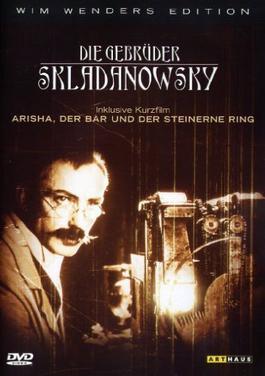
A Trick of the Light is a 1995 German biographical film directed by Wim Wenders. The film was made with the students of the University of Television and Film Munich and is a combination of docudrama, fictional reenactment, and experimental photography to show the birth of cinema in Berlin where Max Skladanowsky and his brother Emil built a projector they called the Bioscop.

The Great and the Little Love is a 1938 German comedy film directed by Josef von Báky and starring Jenny Jugo, Gustav Fröhlich, Rudi Godden. Jugo plays a stewardess working for Lufthansa. It was shot at the Johannisthal Studios in Berlin with sets designed by the art directors Karl Weber and Erich Zander. It was filmed partly on location around Genoa in Italy.

Ezio Bosso was an Italian composer, pianist, double bass player, and conductor. He composed film scores such as Un amore and Gabriele Salvatores' Io non ho paura, and ballets which were performed by The Royal Ballet and the San Francisco Ballet, among others. As a pianist, he released a solo album which entered the Italian charts.
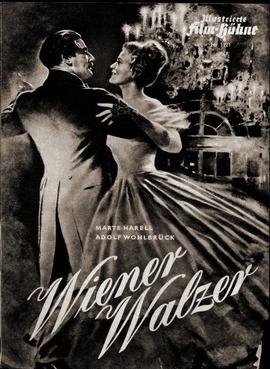
Vienna Waltzes is a 1951 Austrian historical musical drama film directed by Emil E. Reinert and starring Marte Harell, Anton Walbrook and Lilly Stepanek. It is also known by the alternative title of Vienna Dances.
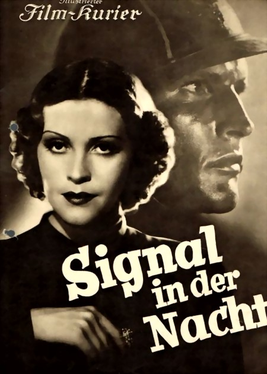
Signal in the Night is a 1937 German war drama film directed by Richard Schneider-Edenkoben and starring Sybille Schmitz, Inge List and Hannes Stelzer. Location shooting took place at Grünwald Castle and around Bad Reichenhall in Bavaria.
















